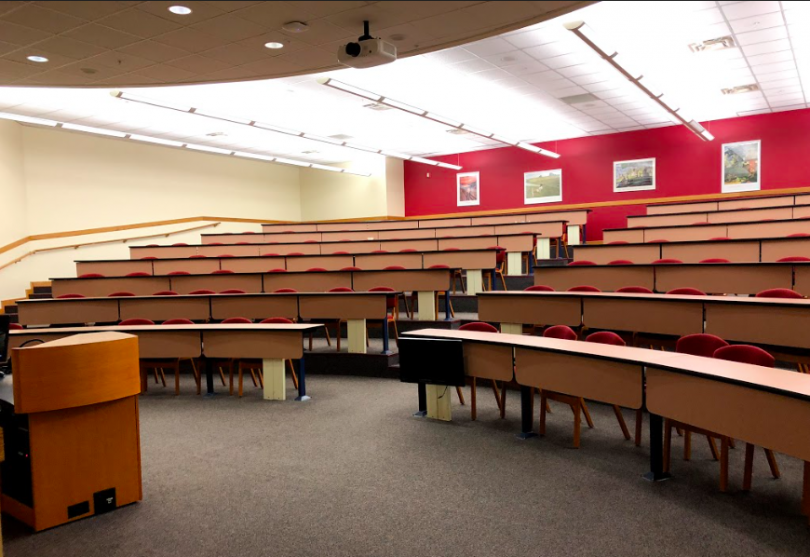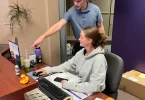Stutzman Lecture Hall was packed last Wednesday when the Bluffton Education Organization hosted first- and second-year teachers who graduated from Bluffton to talk about their experiences in the education field thus far.
Here are five takeaways from this panel that can help prospective teachers in their careers with education.
- If you’re in early education get a fourth- and fifth-grade endorsement.
Second-year teacher Sarah Luersman of St. Charles Lima said, “(fourth grade) was the only position open, and they hired me because of my fourth- and fifth-grade endorsement.”
She went on to say fourth- and fifth-grade endorsements make students more marketable due to the flexibility they provide.
- You might be expected to teach lessons during the interview process.
“It was a little intimidating because there were two administrators and six teachers all watching me…and a class of 25 third-graders,” said Kelsey Baughman, a second- and third-grade intervention specialist at North Union.
She said her interview process consisted of an initial interview with the principal, assistant principal and special education director, as well as teaching a live lesson. Integrating live lessons within the interview process is a growing trend in education, the presenters said.
- Email schools asking whether they have positions available, you don’t always have to wait for the jobs to be posted.
Trey Elchert, a fifth-grade teacher a Tiffin City Schools, wanted to work close to home, so he took the initiative to email schools in his area even when they didn’t have jobs posted yet.
“So I looked within a 30-minute radius of (where I live) and emailed 10 to 12 different schools… I think I heard back from two, but one I heard back from all it took was one interview, and I was hired,” said Elchert.
- Be prepared to adapt; your lesson plans won’t always go as planned.
Most students have probably experienced a planned lesson for the day going off track. For teachers, it’s important to anticipate and adapt to evolving situations and schedule changes.
“You can be prepared, but you also have to be ready to change what you need to do,” said Megan Long, math teacher at Lima Senior High School.
- Your most challenging students are the ones you’ll want to help the most.
The panel of teachers were asked to “introduce us to the kid you hoped would be absent.” The teachers all mentioned students they had who made their teaching days more challenging.
“We just get so much more done when he’s not there,” said one of the teachers. Others said they often must focus a large portion of their attention on a couple students who do not behave properly.
“Of course the class day is easier when they’re not there, but you also know if they’re not at school there is a reason, and they are probably not in a good situation” said one of the teachers.
All the teachers in the panel came to a similar conclusion, which is some of the most gratifying experiences they’ve had in teaching is when they reach their most troublesome kids and affect a positive change on their lives.







